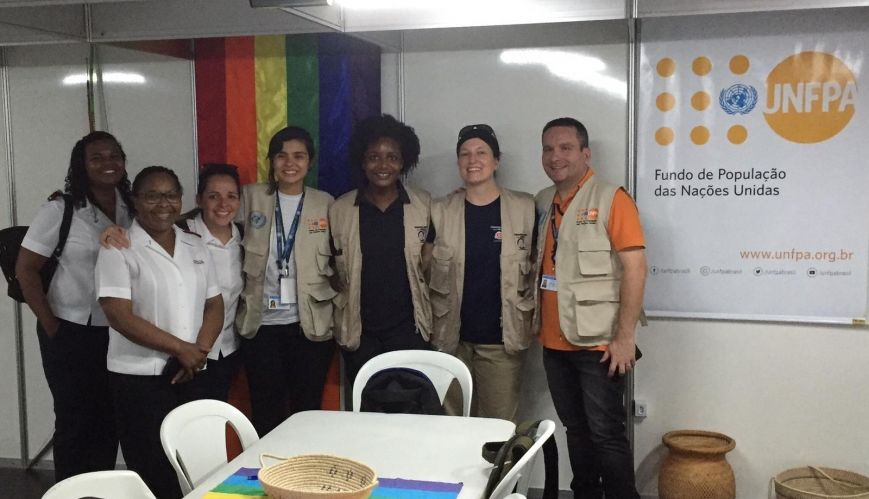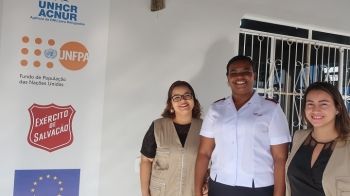Salvation Army partners with United Nations in Brazil

Salvation Army partners with United Nations in Brazil
The new centre in Brazil, for those who have experienced gender-based violence, is a partnership between The Salvation Army and the United Nations.
People in the Brazilian city of Boa Vista who have experienced gender-based violence, including many refugees and migrants, now have a new safe space where they can seek assistance.
The Centre for Coexistence and Psychosocial Care, an initiative linked to The Salvation Army Bridges Project, opened in the Roraima state capital on 18 January.
It centre is being run in partnership with the United Nations Population Fund (UNFPA) and UN Refugee Agency (UNHCR), with funding provided by the European Union (EU). Services are provided for those who have suffered gender-based violence, with a particular focus on women, young people, disabled people and members of the LGBTI community.
The centre’s service provision is part of the multi-agency response to the large-scale migration of Venezuelan nationals into the area since July 2018.
 Partnership representatives at the centre's opening.
Partnership representatives at the centre's opening.
Among the services that will now be available are social and psychological assistance, legal counselling, therapeutic and life skills workshops, and socio-educational activities. These services to the community will be carried out by professionals with specific training in each area, from Monday to Friday.
Centre staff can also help with registration processes, sheltering of the most vulnerable groups, providing access to information and taking any other necessary action to support and care for children and victims of gender violence.
The Salvation Army’s Major Philippa Chagas said of the launch: “This is a much-needed provision in Boa Vista, which is still receiving migrants from Venezuela, some of whom have experienced great trauma. The Salvation Army is pleased to work with our colleagues from UNFPA and UNHCR on this important initiative, using our skills, building on links we have made in this transient community and sharing our passion for serving a suffering humanity.”
The partnership between UN agencies, civil society, local governments and the EU aims to not only extend the protection of refugees and migrants, but also to ensure peaceful integration and coexistence with the local population. Services can be accessed by all, regardless of nationality, age, gender or sexuality.